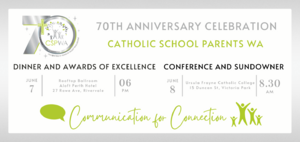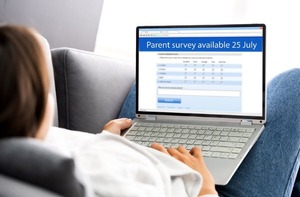Vaping: DARTA Resources
Paul Dillon, Director and founder of DARTA, has a range of resources available on his website for parents, who are trying to understand this new phenomenon. He says that unlike other alcohol and other drug issues, vaping has been brought onto school grounds with devices being bought, sold and used in bathrooms and in some cases, classrooms. DARTA has developed a series of resources that may assist schools in this area and provide information on vaping for students, teachers and parents.
Read more HERE
7 Body Language Tips for Your Next Video Meeting
Many studies have emphasized the importance of body language in meetings. For example, slouching in your chair can be seen as unenergetic and lethargic, and not making eye contact shows lack of confidence. While subtle, these differences in your positioning can have huge impacts on the productivity and success of your meetings.
However, many of these studies used in-person meetings as reference points. With the rise of flexible work and distributed teams, meetings are increasingly moving online. The question becomes: does body language still apply when you’re in a video meeting?
Read more HERE
Tips to help you and your child through exam stress
September 19, 2018
It is a real test of parenting when there is an exam student in the house - the date of the WACE exams can evoke feelings of rising anxiety – in students and in their parents! It can be very difficult to stay detached from all the talk about ATAR, what course your child is hoping to do and at which university.
Unfortunately, parents often unintentionally add to this stress by allowing themselves to become consumed with the whole process – or on the other end of the scale by being too laid back which may come across as not caring. What’s needed here is a balance and realistic expectations.
When the WACE exams are just around the corner all parents can do is to support their children, reinforce our confidence in them and make it very clear that we do not think they are defined by their exam results.
Calmness
o Easier said than done..... however parents have the ability to create a calm environment in which to study which include being comfortable, well lit and quiet. If possible don’t arrange ‘playdates’ for younger (or older siblings) during this couple of weeks pre and during exams.
Perspective
o It is exceptionally important that we reiterate with our children that we will love them no matter what and that unexpected exam results will not change that. There are many many ways in which they can achieve their goals and WACE exams are only one of those ways.
Routine
o Keeping to a normal routine is important for both parents and children. Parents who take time off work to ‘be there’ can actually add to the anxiety by placing an added layer of angst. As for your child, he/she will still enjoy the bus-trip home from school, catching up with friends and taking their mind of studying for a short period.
o Having said all this, parents being available to provide some additional practical support at this time such as a lift somewhere or a comforting word will do no harm.
o It is also a good idea to encourage your child to continue to attend school until exam time. They may use excuses like ‘it’s easier to study at home’ but realistically they are probably better to be at school where they will have the support network of their peers and teachers.
Venting
o As is common with most most people who experience periodic times of stress, your child will be more likely to let off steam by venting on those closest to them, often their parents. This should not be taken personally so try to be the parent who walks away, takes a deep breath and lets it slide. It will all be over sooner than you think!
Vulnerability
o Keep an eye out on how your child deals with the ‘mock’ exams. This may provide some indications on how they will deal with the WACE exams. Most children will deal with stress of exams even though some will do it better than others. It is worth being aware however that problems may arise if your child has had additional trauma in the year leading up to the exam. Stresses such as loss, relationship breakdown or difficulties with friends can add to the levels of anxiety around exam time. Mock exams will alert you on how to approach the WACE exams. Reaffirm that exam results do not define who you are.
o A good life balance where your child continues with their sport and seeing their friends will contribute to their wellbeing and help alleviate the stress. Exercise as with all of us is vital . It is important to try and reduce your child’s stress levels and not add to them. Too much stress can stop them from reaching their potential by affecting they way their brain recalls and applies information.
Sleep
o A good night’s sleep is paramount (and not just at exam time). Even if your child normally has a device such as a phone in their room at night (never a good idea for anyone) suggest that it is left in another room during this time. The distraction of technology at night is not conducive to a good night’s sleep. Suggest some ways for your child to wind down before bed such as having a warm bath, reading a few pages of a book (other than a text book) meditation or prayer.
Brain Food
o A balanced diet is essential for all our children, all the time but absolutely vital at exam time. Diets including lots of brain food like nuts, seeds and oily fish are particularly beneficial at this time. As parents we can prepare in advance by ensuring that there are healthy snacks available within seconds (!!) as this will stop the constant trek to and from the biscuit barrel.
And remember that although exams may be a necessary evil, they do not and never will define who your child is – please make sure your child knows this.
Busting the Myths- Alcohol Think Again
August 20, 2018
Introducing my child to alcohol and letting them drink at home will teach them how to drink responsibly, like they do in some European countries.
There is no evidence that introducing alcohol to children and adolescents is helpful in building responsible drinking behaviours. However, there is strong evidence to support parents in holding off their child’s alcohol use for as long as possible. Young people who start drinking early are at greater risk of developing alcohol problems later on.
Some European countries have much higher rates of alcohol-related harm than in Australia. For example, the rate of alcohol-related falls, injuries, road traffic crashes, liver cirrhosis, mouth and oropharynx cancers are up to 3.5 times higher in France than in Australia.
It’s better if I supply my child with alcohol rather than them getting it from someone else.
Some parents provide their teenagers with alcohol thinking that it will control the amount they consume. There is little evidence to support this belief. In many cases, young people may drink what their parents give them, plus more.
Ease of access to alcohol is a very important factor in influencing young people’s drinking. If alcohol is easy to get, people drink more. When parents provide alcohol to their children, they make it very easy for young people to access it.
It is important to be aware of the spoken and unspoken messages about alcohol that adults send to young people. Providing alcohol to adolescents can suggest approval of underage drinking and sends the message that it’s ok for young people to drink alcohol.
- Most parents give their children alcohol.
Many parents do not give alcohol to their children.
Sometimes parents feel pressure - from their children or other parents - to provide alcohol to young people. If you decide to delay your child’s alcohol use, you will not be alone, as many other parents have made the same decision.
Talking openly with other parents about the importance of delaying young people’s alcohol use will help to raise awareness and stimulate important discussions. You may be surprised how many other parents feel the same way!
It is important to discuss alcohol with your child from an early age to ensure they understand what is expected of them.
- Teenagers are always going to drink, no matter what we do.
Parents have an important role in reducing their child’s use of alcohol. However, the role of parents must be supported by the broader drinking culture, including the ways in which alcohol is promoted and viewed.
Limiting access to alcohol and clearly communicating your disapproval of your child drinking alcohol are actions that have been shown to have an important impact on young people’s alcohol use.
Reducing young people’s use of alcohol is an important and achievable aim.
- My teenagers are going to start drinking sooner or later. I may as well let them drink at home now.
There is no evidence to support parents introducing young people to alcohol in the home as a method of teaching responsible drinking. In fact, starting drinking at an early age has been shown to increase the likelihood of alcohol-related problems later in life, including more regular use of alcohol in greater quantities.
The good news is that the number of young people who don’t drink has increased. However, those who do drink are drinking at more harmful levels.
There is strong evidence to support parents in holding off their child’s alcohol use for as long as possible. The longer young people delay drinking, the less likely they are to develop problems with alcohol later on.
My children are teenagers now. As a parent, I don’t have as much influence over them as their friends do.
The evidence tells us that what parents do, how they communicate their expectations to their children and whether they supply alcohol does influence their children’s choices.
The critical role of parents continues as children become teenagers and young adults, and includes knowing where your children are, who they are with, making sure they understand your expectations (e.g. about staying in touch, the time they are expected home, consequences for when family rules are broken) and what to do if they need help.
In addition, a parent’s own relationship with alcohol influences young people’s drink– that is, adolescents learning drinking behaviours by observing them from their parents – is associated with starting to drink earlier and increased alcohol use later on.
- Alcohol isn’t as much of a worry as cannabis or other drugs.
Alcohol is a drug – it is a legal drug that has the potential to cause a wide range of short and long-term harms. Alcohol is readily available and very accepted in Australian culture. Alcohol is also heavily promoted and available at low cost in forms that are highly appealing to young people.
A major national survey in 2010 found that 6% of 14 to 17 year olds and 16% of 18 to 19 year olds had used an illicit drug in the last month (cannabis was the most common drug reported).
The same survey found that one-third (33.1%) of 14 to 19-year-olds drank amounts that placed themselves at risk of an alcohol-related injury at least once a month.
A survey of 18 to 19 year old Australians’ use of alcohol and other drugs in the previous 12 months showed that 86.3% had consumed at least one serve of alcohol and 21.3% had used cannabis.
What You Need to Know about Girls and their Frenemies
How to stop relational aggression is one of the biggest challenges facing schools and parents. What is it? Why does it happen? How can we stop it?
Read more HERE
Alcohol and the Law- What parents need to know
November 1, 2016
Did you know that almost 40% of underage drinkers get alcohol from their parents, and only 5 % buy it themselves? Therefore, a good deal of underage drinking (55%) occurs when minors obtain alcohol from a person who is not their parent, guardian or carer. This is termed as Secondary Supply.
The National Health and Medical Research Council’s Australian guidelines suggest that for people under 18 years of age, not drinking alcohol is the safest option. There have been lots of cases where a person has suffered injuries or died as a result of drinking too much alcohol after being supplied with it by an adult who was not their parent.
Regulating private supply of alcohol aims to stop that happening by deterring adults from supplying alcohol to young people without approval from the young person’s parents. Across Australia, a person who is under the age of 18 is not breaking the law if they drink alcohol on private property. However, in Western Australia and other states the person who supplied them with the alcohol could be breaking the law-unless they are the child’s parent or guardian and act in a responsible manner.
Under Section 122A of the Liquor Legislation Amendment Act 2015 (WA), it is illegal to supply alcohol to people aged under 18 in a private home without the consent of the parent or guardian. It is an offence to supply alcohol to people under aged 18 if the parent or guardian giving consent is drunk or otherwise unable to act in a responsible manner. Offenders are liable for a fine of up to $10,000 for each underage drinker involved.
How does this impact on parents who are hosting a party? We’ve all heard the horror stories in the media of out of control parties, even with careful planning. It is understandable that you may feel overwhelmed about what might happen if you host a party for your child. You must remember that the media usually only focus on parties that don’t go well, and that many parents successfully conduct parties for their teenagers with only happy memories of the event. Of course, any party you host has the potential to go awry, and there are several things you can do at the planning stage to enable things run as smoothly as possible, and to be ready for unexpected problems.
Here are examples of some of the things you can do:
· An alcohol-free party is the safest option. Don’t supply or allow alcohol to be brought to the party and inform invitees of this on the party invitation.
· Make the party “invitation only”
· Negotiate ground rules with your child about what will and will not happen at the party.
· Make sure the party is well supervised by adults: you may need to ask some friends to help. Good adult supervision can significantly reduce the likelihood of people being harmed.
· Do not allow anyone who is obviously affected by alcohol or other drugs to come into the party
· Let the police and the neighbours know you are having a party.
For more information go to Alcohol Think Again









